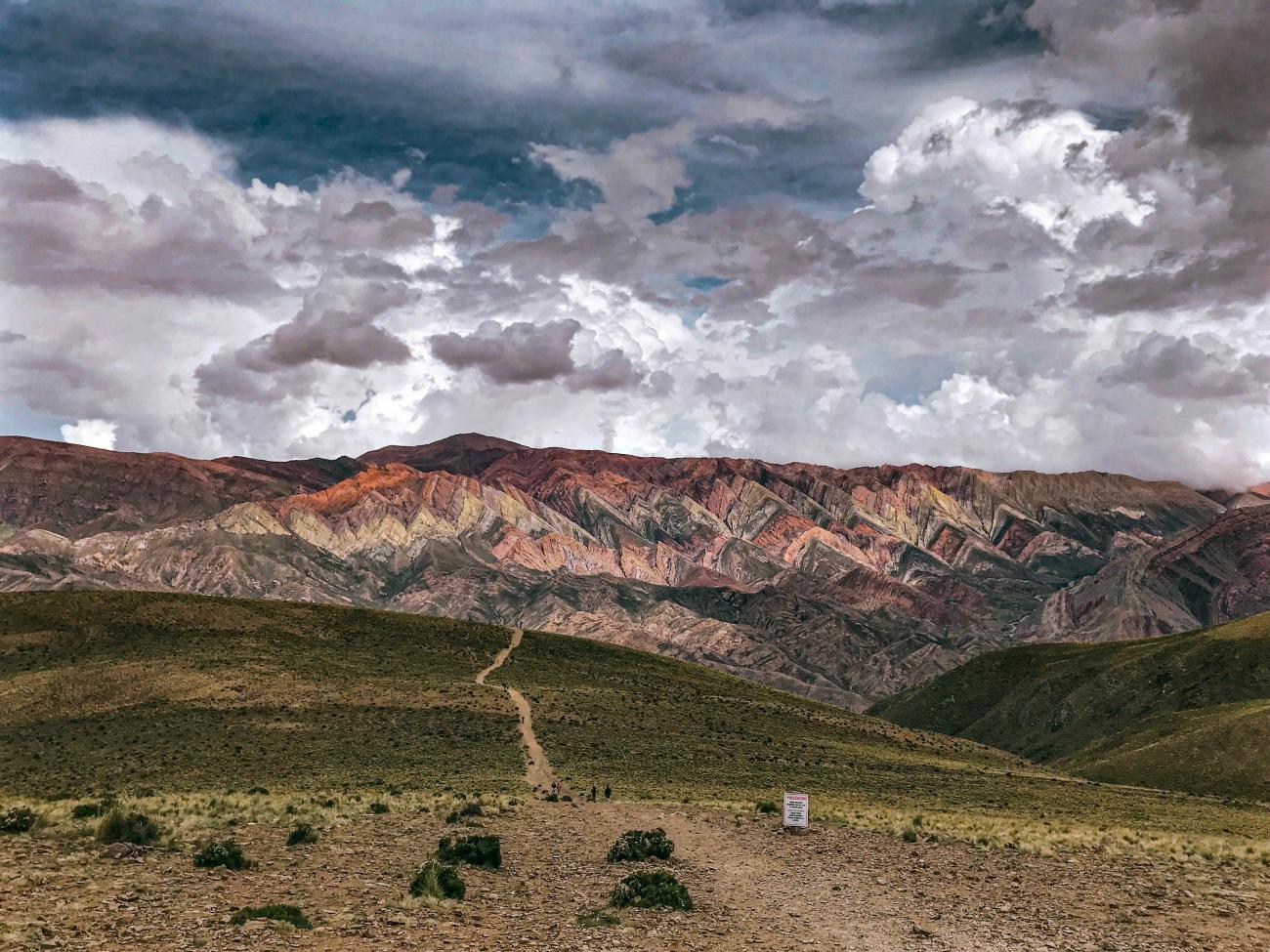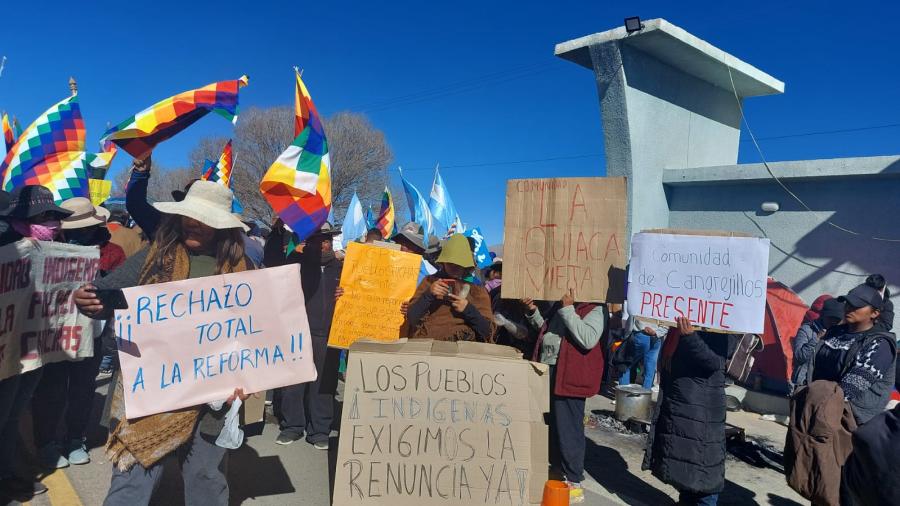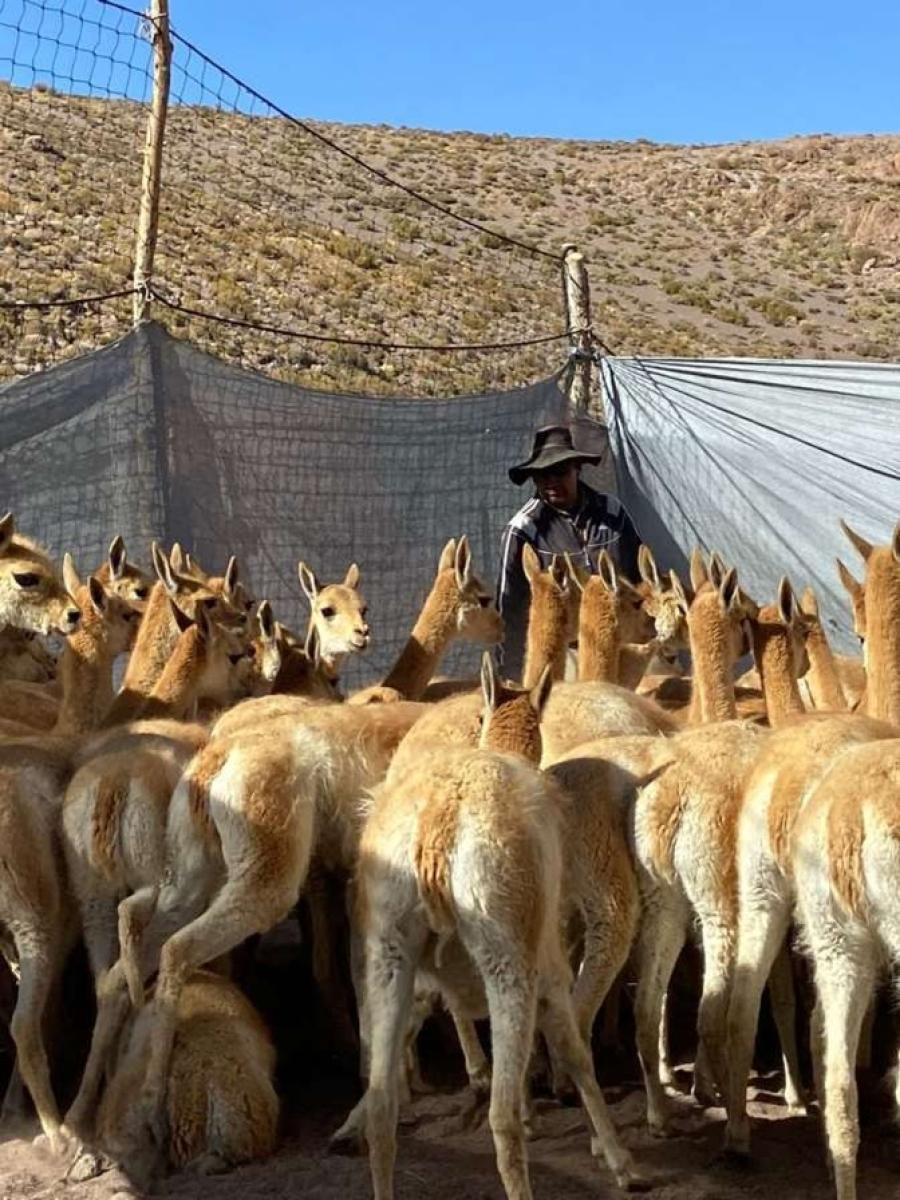
For centuries, the Indigenous Peoples who live in the north of Argentina in the province of Jujuy have maintained their culture and ways of life differently from people from other parts of the country. In Jujuy, there are more than 400 Indigenous communities, a majority of whom are Kolla Peoples, but also Guaraní and Oclolla. They are recognized in the Constitution of Argentina, where it is declared that “Indigenous Peoples already existed before the State of Argentina existed.” Argentina signed the International Labour Convention 169, also known as the Indigenous and Tribal Peoples Convention, in 2000, and ratified it through national law 24071, Article 75, paragraph 17.
Despite this legal protection, Indigenous communities in Jujuy have faced violations of their rights in breach of laws that protect them in the last several years. Projects that affect Indigenous Peoples, such as the installation of fiber optic cable in the community of Angosto el Perchel in Jujuy, were carried out without the Free, Prior and Informed Consent of local communities. When the work began, the community immediately opposed it. The company and the community became acrimonious toward one another, with the matter ultimately leading to a trial.
“We asked that the national and international laws that exist [to protect Indigenous Peoples] be complied with. We demanded that [our Free, Prior and Informed Consent] be obtained by the government and the company that was carrying out the work. A judge ruled that it be carried out and that they meet with us,” says Raúl Samaja (Kolla), Vice President of the Angosto el Perchel community. The community considered that a trial was necessary to comply with the law. “Any company that wants to install a project must consult; if they don't, it is a violation of international conventions and national laws,” says Samaja.
Sometime later, the company met with community leaders to conduct a consultation, and the community gave consent for the work in accordance with the standards of ILO Convention 169. When proper consultation is not carried out, the community is severely damaged. Samaja explains that there are four types of consultation: the initial consultation, the environmental consultation, the consultation for Free, Prior and Informed Consent, and the consultation in line with ILO Convention 169.
Not all communities in Jujuy have fared as well, as some communities have been deceived during the consultation process. In some cases, an acta (formal document of agreement) has been reached within a day to endorse a project. But these types of agreements are not entered into in good faith on the part of the corporations, and are not in accordance with ILO Convention 169. “Companies cannot lie to communities, nor can the State. The lawyers are clear about what type of consultation they should do, which should not be an agreement between the parties,” Samaja says. “In some cases, the companies or the government take advantage of the fact that there are people who cannot read or understand the technical terms of the papers that are put on the table, even though the lawyers have the obligation to enforce the Argentine Constitution and other laws,” he adds.
Such a case occurred in the community of Salinas Guayatoc, involving several women from the community. Previously, two lithium mining companies started working in the Salinas Grande area, which is home to about 30 Indigenous communities. The local women told the company to leave because they had not obtained permission to work in their communities. They were given a day to leave, and the companies complied. Later it came to light that the government of the province of Jujuy had been promoting and summoning extractivist companies to come to the communities to extract lithium, regardless of what happens to those who live there. The communities of Salinas Grande invited the governor of Jujuy to talk with them, but he never went. Lithium is an important mineral essential to the manufacture of batteries for electric vehicles and critical to the development of a “green,” low-carbon economy.
Metal mining is one of the world’s dirtiest industries, responsible for at least 10 percent of greenhouse gas emissions. It is linked to environmental destruction, freshwater contamination and depletion, human rights abuses, forced displacement, loss of livelihood, violent conflict, unsafe working conditions, and illicit financial flows in many parts of the world. As demand for transition minerals skyrockets, increased mining threatens Indigenous rights and territories where there is not a comprehensive assessment of risks and harms to Indigenous Peoples or full participation of impacted communities. The price of lithium continues to rise, hitting an all-time high of $80,000 per tonne in August 2022, up $30,000 just one year prior.
The communities of Salinas Grande invited the governor of Jujuy to talk with them, but he never responded directly, only sending lower ranking officials. Eventually, the community released a public statement announcing that it would not allow the entry of the mining companies. “To extract lithium, they use huge amounts of fresh water. The community has little water, so where do these companies get their water? They take it out of the warehouses! Then the contaminated water…we don't know where it goes, we don't know what the future of plants and animals will be,” says Samaja. “We have denounced this situation before Congress in Buenos Aires, but there has been no response. What is happening with Law 6066, where territory was taken from Jujuy in La Quiaca, has also been denounced. However, there is no response. The government made the law without even consulting the community.”
Estela Bejarano (Kolla), a member of the education and gender group of the Angosto el Perchel community, says that in the conflicts in Salinas Grande and other communities in the province of Jujuy, the resistance has been led by women, who have been the targets of much aggression from the police and other State institutions. “Women have put their bodies on the frontlines,” she says. “I don't want to undermine the presence of men, [but] women have been beaten and arrested on several occasions for defending their territories, their families, their communities.”
In the area of the Cerro Tuzgle volcano, which is predominantly inhabited by women, a landowner from outside the community arrived and killed the animals of the women who live in this area. The police did nothing and absolved the landowner, even though the women had evidence of his wrongdoing. The women are now receiving death threats and fear for their lives when they walk down the road. In Angosto el Perchel and Salinas Grande, people are dependent on agriculture, particularly on raising cattle, llamas, and sheep.
Indigenous Peoples have been attacked and violated throughout history, and the situation continues today. Women are not listened to, even though there are laws to protect them. So, the women of Jujuy have joined a larger women's movement to fight against Law 5915, which incorporates a lien on community property, to defend their natural resources—particularly the water, from activities that will negatively impact the lives of their communities and future generations.
Bejarano says that they know very well that international laws support them, even though Sustainable Development Goal #5 relates to the realization of women's equality. But in Jujuy, this does not seem to be the case. “We would like the health centers and mobile health clinics to materialize as quickly as State agents do [when we are resisting]. The women in Jujuy revolve their lives around Pachamama (Mother Earth). The abuse that women endure creates disharmony and tension. We do not live in safety or in peace,” she says, adding, “That is why it is necessary to self-educate, from the knowledge of our Elders to the youth and children, and from Indigenous professionals who are in the urban areas and who can train us to support us in the knowledge of Indigenous rights and human rights.”
Bejarano and others from the community are joining forces with lawyers to build capacity and train communities in diversity. They see intercultural exchanges as the ideal way of building relationships between Indigenous people and non-Indigenous people. This is the first step to claiming self-determination and self-government. However, it has been difficult to change the public education system. Even when primary and secondary teachers have received diversity training, it has not been put into practice.
For this reason, efforts are still being made to achieve a dialogue within intercultural education. This dialogue presumes equality within communication; it presumes that the traditional authorities of the communities be respected as government authorities. It also means inclusion to accept traditional medicine and health practices and respect for the knowledge of Elders. Intercultural education also includes Traditional Knowledge of natural resources, which goes hand in hand with environmental education. Indigenous Peoples have stewarded biodiversity for centuries.
Samaja believes that the educational system in the province of Jujuy fails to acknowledge the Indigenous students, leading them to “feel ashamed of their mothers and their cultural practices." It is a process of shaming and discrimination carried out by the State through education, he says. Indigenous self-identification is key to the survival of the Indigenous Peoples in Argentina.
Top photo: Esther Pérez


